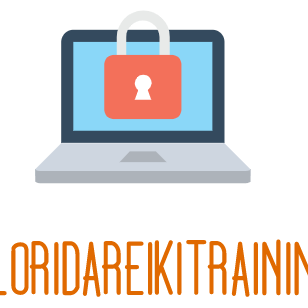Navigating Drug Testing Policies For Cannabis In California
Introduction
California has been at the forefront of cannabis legalization in the United States. However, despite recreational marijuana being legal in the state since 2016, questions such as “Does California drug test for weed?” remain prevalent among employees, employers, and the general public. This article delves into the legal landscape of marijuana drug testing in California, providing a comprehensive overview of when and how drug testing for cannabis takes place.
Legal Context of Marijuana in California
California became the first state to legalize medical marijuana in 1996 with the passage of the Compassionate Use Act. Two decades later, in 2016, the Adult Use of Marijuana Act was passed, allowing adults aged 21 and over to use, possess, and cultivate marijuana for recreational purposes.
However, legalization does not equate to unrestricted freedom. Employers in California still retain certain rights when it comes to enforcing workplace policies regarding drug use, which often includes drug testing. These policies must comply with privacy rights and discrimination laws, creating a complex interplay between employee rights and employer responsibilities.
Employment Drug Testing in California
California’s employment law does not prohibit drug testing, but it must be conducted in a lawful manner. Pre-employment drug screening is a common practice where employers require potential hires to undergo a drug test as a condition of employment. Employers also have the right to conduct reasonable suspicion, post-accident, and random drug testing, depending on the nature of the job and the company’s policies.
But does California drug test for weed specifically? The answer is not straightforward. While an employer can include marijuana in their drug testing panel, there are legal considerations and potential limitations they must take into account, especially since the substance is legal under state law.
Impact of Legalization on Workplace Policies
The legalization of cannabis has prompted many companies to reevaluate their drug testing policies. Some employers in California may choose not to include marijuana in their drug screening processes, especially for positions that are not safety-sensitive. However, for roles that require a high level of safety, such as operating heavy machinery, employers may still enforce a strict no-drug policy, which can include testing for marijuana.
It is also important to note that, despite state legalization, marijuana remains illegal under federal law. This means that federal employees and those working in federally-regulated industries, such as transportation and defense, are still subject to federal drug testing regulations, which include testing for marijuana.
Privacy and Discrimination Concerns
In California, employees have a right to privacy that extends to drug testing. Employers must balance their need to maintain a safe and productive workplace with the rights of employees. Drug testing policies must not be discriminatory or invade an employee’s privacy beyond what is considered reasonable. Additionally, employers must ensure that testing procedures are fair, accurate, and confidential.
The question, “Does California drug test for weed?” also intersects with issues of medical marijuana use. Employees who use marijuana for medical purposes are granted certain protections, but these protections do not allow impairment on the job or using marijuana during working hours.
Marijuana and Impairment in the Workplace
One of the biggest challenges with marijuana drug testing is determining impairment. Unlike alcohol, where blood alcohol concentration can provide a reasonably accurate measure of impairment, the presence of THC in one’s system does not necessarily correlate with being under the influence at the time of the test. This is because THC can remain detectable long after the effects have worn off.
As such, employers have to consider the implication of a positive test result for marijuana. Does it truly indicate current impairment, or could it be the result of legal, off-duty use? The approach to this challenge varies between employers and often requires a nuanced understanding of the effects of cannabis.
The Future of Drug Testing for Weed in California
As societal attitudes toward marijuana continue to evolve, it is likely that drug testing policies will undergo further changes. Some advocates are pushing for reforms that would provide greater protections for employees who use marijuana legally outside of work hours without affecting their job performance.
Moreover, advances in technology may one day provide more precise tools for measuring impairment rather than mere presence in the body, which could lead to more fair and relevant drug testing practices. For now, California businesses and workers must navigate the current landscape, balancing the rights and responsibilities associated with marijuana use.
Conclusion
The question of “does california drug test for weed ?” reflects the complex interaction between state legalization, federal law, employment practices, and individual rights. While employers in California can test for marijuana, the legal, social, and practical implications of doing so are multifaceted. Companies must craft policies that protect their interests while respecting the legal rights of their employees to use marijuana outside of work.
As California and the rest of the United States continue to grapple with these issues, it is crucial for all stakeholders to stay informed about the latest developments in laws and practices surrounding cannabis. Employers should consult with legal experts to ensure compliance, and employees should be aware of their rights and the expectations of their workplace. The conversation around drug testing for weed in California is far from over, but understanding the current situation is the first step towards navigating it effectively.




